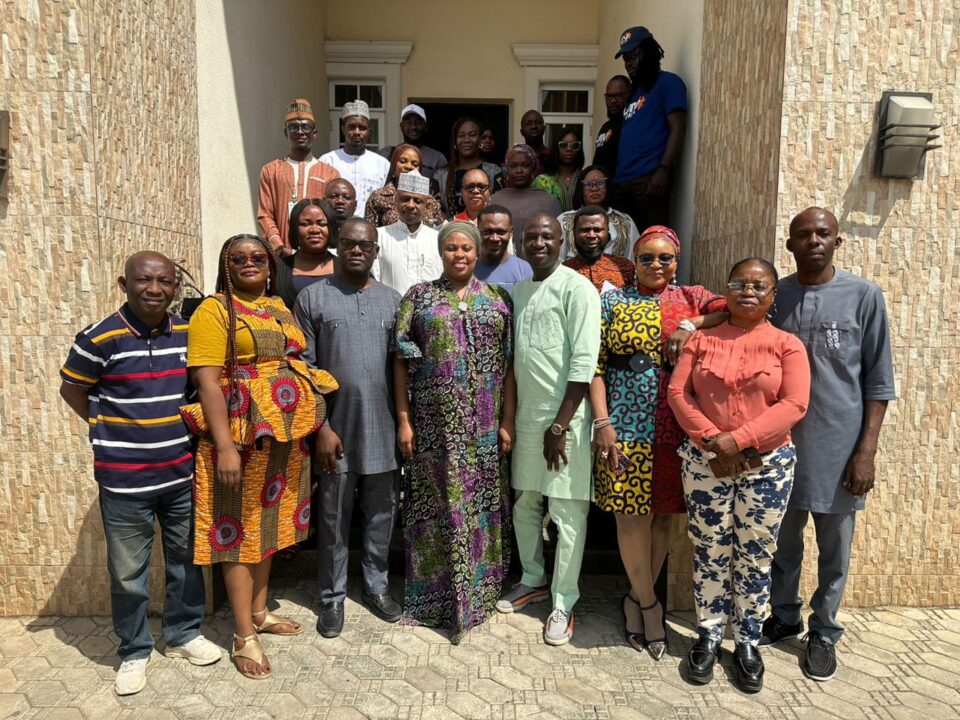By Chuks Oyema-Aziken
The National Council on Climate Change Secretariat (NCCCS) has adopted nature based solutions to tackle climate change.
The Special Presidential Envoy on Climate Change and Director-General / Chief Executive Officer, NCCCS, Dr Nkiruka Chidia Maduekwe disclosed this during a media briefing in Abuja.
She said the NCCCS is the regulatory entity in Nigeria with the statutory responsibility of enforcing compliance with the Act.
“The Secretariat is responsible for ensuring the mainstreaming of climate change actions within all sectors of the Nigerian economy, including the operations of ministries, departments, agencies, the private sector, and individuals.
The Director-General noted that Nigeria, situated in one of the global hotspots of high human vulnerability, continues to experience the adverse impacts of climate change, namely, droughts, rising temperatures, erosion, deforestation, flooding, desertification, and increasing sea levels.
“These impacts are further exacerbated by prior existing vulnerabilities such as high rate of poverty; exposure to security threats leading to massive displacement of persons, property loss, migration, and disruption of economic activities and normal functions of the society; inadequate access to basic and essential services such as water and electricity; approximately 70% of the population dependent on climate- sensitive livelihoods, such as small holder farmers, pastoralist, and fishing communities, and a huge population of over 220 million, projected to reach over 400 million by the year 2050.
“In fulfilment of its mandate, the NCCCS has adopted a theme for the year 2025, which is anchored on Section 27 of the Climate Change Act 2021; and that is “Amplifying Nature- Based Climate Solutions.” To kick-start this, the NCCCS is embarking on a technical site visit to the Mangrove Forest located majorly in the Niger Delta region of the country. Nigeria’s mangrove forest is indicated as the largest in Africa and third (3rd) largest in the world, covering approximately 5% of the global mangrove forest.
‘Given the drive towards utilising nature based solutions as critical mitigation and adaptation strategies to addressing climate change, Nigeria’s mangrove forest provides an easy win with their remarkable capacity for carbon sequestration and contribution to coastal resilience, amongst others. In addition, Nigeria’s mangrove forest has the potential to serve as a hub for global climate finance, through the carbon market.
“This technical visit allows the NCCCS to have an aerial assessment of the impact of climate change on the mangroves, foster collaboration in driving reforestation and conservation of the mangrove, socialize the Nationally Determined Contribution (NDCs) and the Carbon Market Policy, engender a whole-of-society and whole-of-government approach in the NDC 3.0 review process.
“Also, showcase the mangrove forest across the Niger Delta as part of a comprehensive strategy to enhance understanding of ecosystem services, strengthen local partnerships for sustainable mangrove conservation, inform carbon credit systems, and foster disaster risk reduction to develop financing strategy for the benefit of the state.
“Furthermore, as part of the World’s Wetlands Day and in furtherance to the 2025 theme of Amplifying Nature-Based Climate Solutions, the NCCCS is convening a Stakeholder Town Hall Meeting in collaboration with the Nigeria Conservation Foundation and the Climate Change Council Cross Rivers State. The Town Hall Meeting provides the crucial platform for all relevant stakeholders to discuss the next steps towards ensuring sustainable mangrove conservation and protection in Nigeria.
“A key output from this meeting is the National Roadmap on Mangrove Conservation, Reforestation, Afforestation, and Protection. This Roadmap is expected to align with the ongoing NDC 3.0 review and indicate clear avenues to drive finance for mangrove conservation and protection in Nigeria. There is the need to leverage on the Mangrove Breakthrough Initiative launched at the COP27 with the objective to raise $4 Billion USD sustainable finance for mangrove conservation and reforestation.
It is worthy to note that in addition to the Mangrove programme, the NCCCS is poised to deliver several activities, working closely with the various MDAs to actualise its mandate.
“Some of the activities planned for 2025 include: The Youth Climate Summit; Tree Planting as part of the Earth Day and
Environmental Day; Capacity Building for MDAs on the Climate Change Desk Operationalisation; Mangrove Art Exhibition; Climate Negotiators
Training; Climate Security Summit; and UNFCCC CoP 30.
“It is important to note that the NCCCS will be working closely with the Media to ensure early notification of the UNFCCC CoP30 registrations. The NCCCS has scheduled 1st July 2025 as the start-date to receive request for accreditation and 29th September 2025 as the request deadline. To ensure that all Ministries are kept abreast of these important dates, the NCCCS has disseminated its 2025 Activities Schedule to all Ministries. The CoP Registration portal will be used as the platform to receive accreditation request from MDAs and private sector.
“Calling to mind Nigeria’s commitment to submit the NDC 3.0, the NCCCS is happy to share that last year the NCCCS through the Nationally Determined Contribution Partnership (NDC Partnership) sent request to Partners to fund the third generation Nationally Determined Contributions (NDC 3:0) review process.
“The request is seeking support to review the NDC 2.0 and to move the NDC Implementation Framework to a Financial Plan indicating a clear pipeline of bankable projects. This request has received a favourable response from Partners. The Partners would usually engage the Consultants of their choice to undertake the review, and this is ongoing.
“To ensure national ownership, institutional capacity building, and knowledge transfer, in the NDC review process, the NCCCS has requested that Nigerian Consultants be given priority without prejudice of technical backstopping from the international consultants.
“In addition, to guarantee a whole-of-government and whole-of-society co-created NDC 3.0, the NCCCS has requested Ministries to nominate an officer not below the Directorate cadre to be members of the review steering committee. The steering committee consisting of representatives of the Governing Council members, the private sector, academia, and the media is key to guiding the review process. The first meeting is scheduled for the third week of January 2025.
“The NCCCS is committed to actualising a climate-resilient Nigeria and more so in line with H.E. Mr President’s Renewed Hope Agenda and national development,’ she added.



